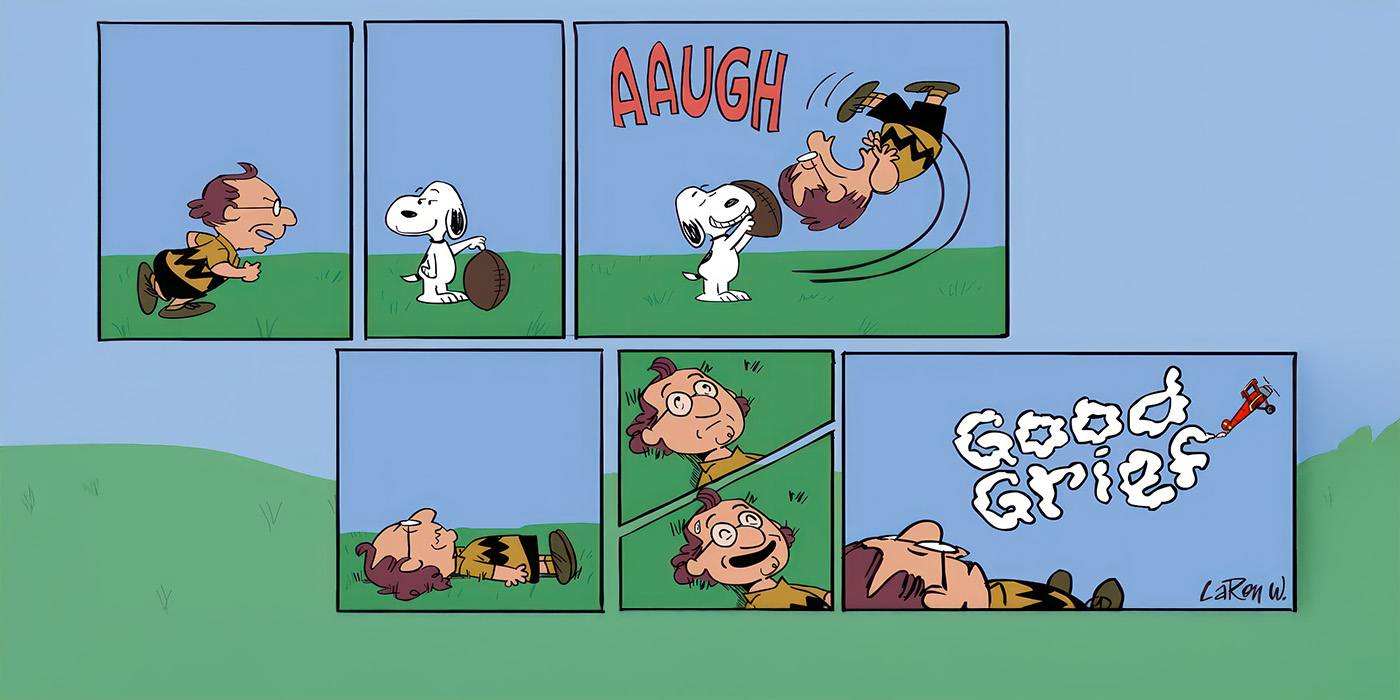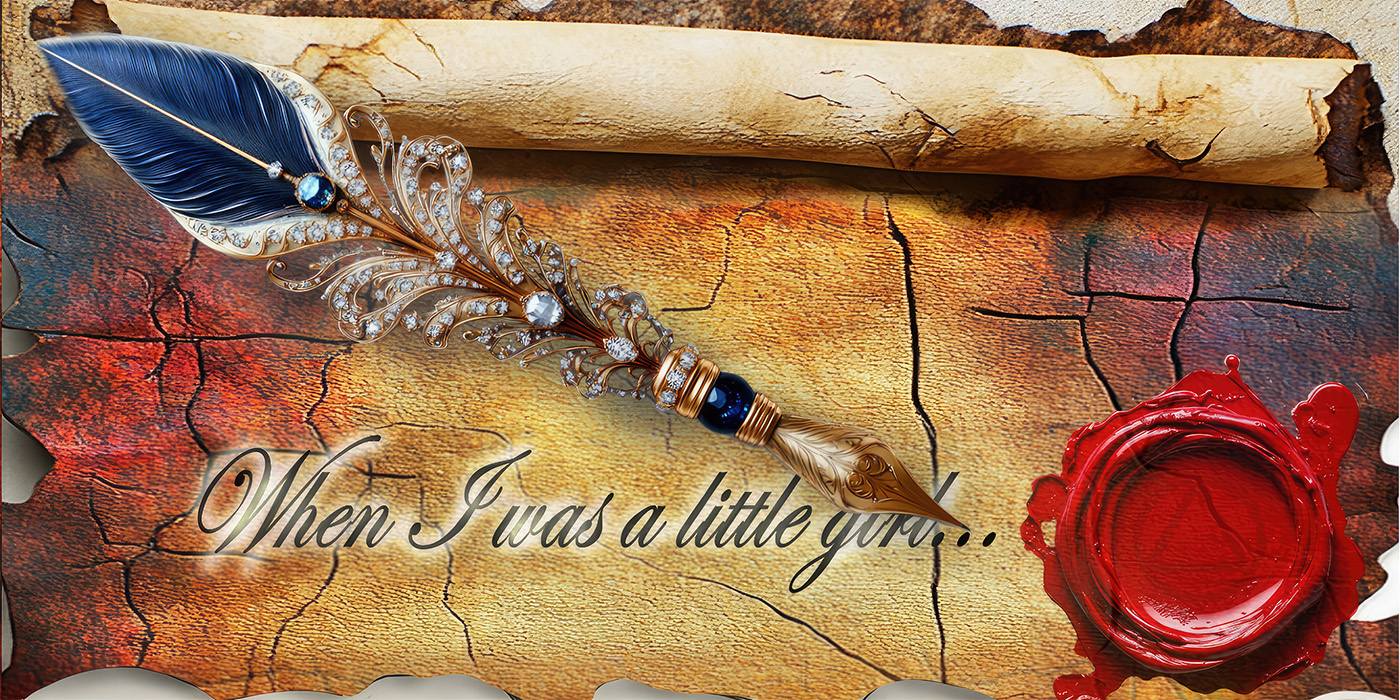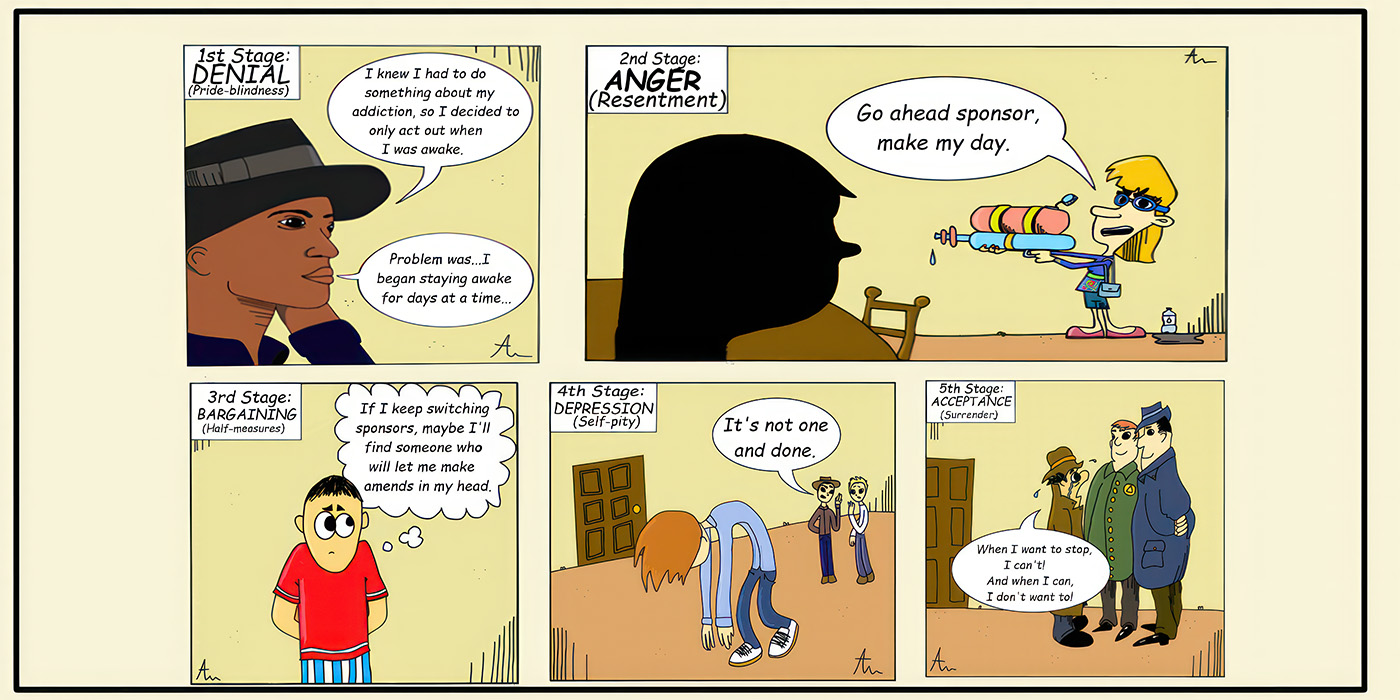I’m a sexaholic, married to the man who wrote the previous story. My husband is serving time in prison for crimes he committed while active in his sexaholism. Our story is one of hope. We’ve been told that we will never be a family again because of society’s laws and judgments—but we choose to see our family differently.
My story began as an incest survivor. My abuser was my grandfather. The abuse started when I was five and ended when I told my mother at age 11. My mother kept me safe from my abuser, but she was unable to stop my choice to regard myself and others as sex objects.
To escape from life, I became addicted to alcohol. Alcohol became my gateway to other demons. I tried to find meaning in empty bars, cars, public places, and alleyways, with unknown faces who pretended to care. I didn’t care.
At a young age, I learned that love is control. My abuser had controlled me, and until my SA sobriety, I was determined to control others sexually. If a man would not oblige my sexual fantasies, I would move on to the next in order to fulfill the fantasy. I had no interest in long-term relationships. All I ever wanted was my next fix.
In school I received graduate degrees and found employment in the field of social work. I hid behind a mask of intellect while inside I just wanted to be loved—but I did not allow anyone to get close. Professionally, I was educating others on relationships, marriage, and how to be effective parents. Personally, I was living a life of compulsive sex and alcohol abuse.
I worked in residential treatment facilities with adolescent girls who had suffered sexual, physical, and/or emotional abuse. Because of my background, I thought, “I can relate, I can help.” I believed that was the end of the story. God had a different plan.
I married young to a loving man. We had two beautiful daughters. My husband was a wonderful father, but over time I began to feel that we were not compatible emotionally or sexually. I questioned my sexuality and even told my husband that if he died, I wasn’t sure whether I would be with another man or a woman.
I was repeatedly unfaithful to my husband with a man I had met in college. We would meet at college reunions, art exhibits in other states, or mutual friends’ weddings, always with the same result at the end of the night. We would dance, grope, hide from our colleagues and plan the next rendezvous. As long as we didn’t have intercourse, I justified my actions as “just having fun.”
After 10 years of marriage, I met up with another college friend. This time, we became sexual. I could no longer justify my sexual acting out but did not want to stop my encounters with men. So upon returning home, I told my husband that our marriage was over. I simply said that it was time to move on as we weren’t happy in our marriage and were more friends than husband and wife. We divorced amicably; our daughters were always the priority.
Flying solo, I continued working and caring for my daughters. I felt a new freedom—but my demons also had more freedom to soar with no one watching. I found myself doing things I thought only others did: sex in public places, pools, and campground bathrooms. Masturbation became my lover when no man was available. I was addicted to the adrenaline rush of possibly getting caught. I entered relationships with men with whom I did not want a commitment, but at times would even wear their wedding ring just to fulfill my sexual fantasies. I thought that if I agreed to marriage, I could justify anything.
One man I was engaged to couldn’t drink due to a DWI. I decided to stop drinking to support him. I quickly realized that quitting drinking was more difficult than I had anticipated. The relationship ended, but alcohol continued to control my life. I began attending emotional sobriety support groups and individual therapy for my alcoholism.
I was in another relationship that I wanted to end, but I could not stop having sex with the man. My therapist suggested ways to set boundaries on sex. I would agree, but the next week would justify and minimize why I had failed to keep the boundaries. My therapist said he believed I struggled with sex addiction. I thought, “No way do I have that!” But a seed was planted.
Eventually, I spent time in a psychiatric unit and finally surrendered my alcoholism. I began staying sober and participated in the AA fellowship. One day I met a man at an AA picnic. We seemed to have much in common. We shared recovery and the desire to help others. We were both single parents: he had four children and I had my two daughters. Emotionally and spiritually, I felt a strong connection. When we married, our children ranged in age from four to 12.
Finding my second husband was one of the happiest times of my life. But a few months after we married, I noticed one day that he seemed depressed. When I saw him standing in our kitchen looking pale and teary, I asked what was going on. He looked at me for a few moments with glassy eyes and said, “It’s bad.”
I had no idea that at that moment my life would change forever. My husband disclosed to me the sexual offenses he had committed prior to our relationship, and said that he felt the compulsion coming back. I was overwhelmed by a grief I had never experienced before. I had married this man. How had I missed this?
When I looked into my husband’s eyes, I saw a broken man, desperate for healing but not knowing where to turn. The only option for him was to get help and turn himself in. The next day, February 11, 2006, my husband and I went to the police. He told the officer what he had done and a formal investigation followed.
We endured interviews, questioning, and appointments with lawyers and psychiatrists. We were desperate for help and looked for recovery groups. My husband started attending SA. I went to S-Anon to be a supportive wife, but I soon realized that I could not relate to the anger and betrayal the spouses shared. Instead, I understood the compulsion to act out. Before long my husband shared with me the sobriety definition and his commitment to sobriety, and what that would mean for our sex life. It was then that I recognized the side of myself I had never wanted to face.
I found my own SA sponsor a few days later and wrote my Step One. I was worried that I wouldn’t fit in, but after hearing my story, my sponsor looked me straight in the eye and said, “Welcome to SA.” I knew then that I had found the place where I truly belong.
My husband was sentenced to 6 ½ to 13 years in prison for his crimes. Acceptance had to be the key. On the day of his sentencing, he looked at me and said “God is merciful.” He knew his fate and accepted his sentence. Although he would be behind bars, he was finally free to get help. This all began with SA.
Today I can see the effects of lies, compulsion, and sex addiction from every angle. My husband, children, and I have all lived it. However, when I look at myself and where I have been and where my husband is today, I recognize a slow healing for us. I, as an incest survivor, got to see the other side of sexual addiction. Through SA I can heal from that also.
Today, after four years of working the SA program, I try to stay positive and hopeful that, at the very least, my husband and I are breaking the cycle of sexual addiction in our family. My hope is to reach out to others in sobriety and share that we can have a life beyond our wildest dreams when it is based on living the truth.
I’ve explained to our children the events of the past. I tell them that we will live the truth today, even when we don’t like the outcome. There will be no more lies. I’ve explained that even though we don’t live like other families live, we are still a family because we all love and care for each other. Our children are safe today and they respect and love their father. They understand why my husband goes to his meetings and why I go to mine.
I’m not sure that many families can say they live the truth the way we do. I’m grateful for the opportunity to raise our children and to love a man who was willing to go to any lengths to live the truth.
We know what family means and we will continue to fight for our right to heal, no matter how long it takes. We are worth it. So are all of you!
Dayna M., sober since April 15, 2006






